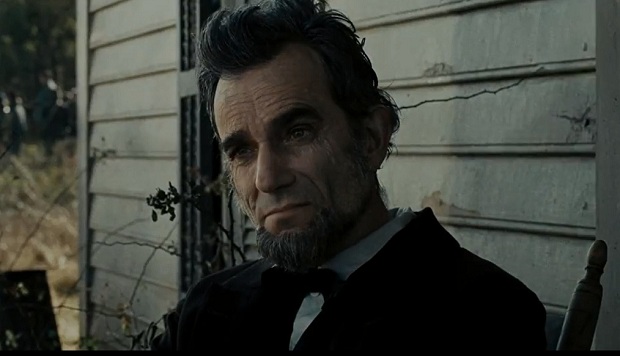 Courtesy of wac.450f.edgecastcdn.net
Courtesy of wac.450f.edgecastcdn.net
Directed by: Steven Spielberg
Starring: Daniel Day-Lewis, Sally Field, Tommy Lee Jones, David Strathairn and Joseph Gorden-Levitt
What It’s About: The legendary United States President Abraham Lincoln challenges slavery and tries to lead a divided nation during the Civil War.
Rated PG-13 (for an intense scene of war violence, some images of carnage and brief strong language)
Runtime: 120 minutes
By Cole Nelson, Staff Writer
On January 1, 1863, United States President Abraham Lincoln issued the Emancipation Proclamation, an executive order declaring the freedom of all slaves. 150 years later, esteemed director Steven Spielberg appropriately releases his biographical period piece film Lincoln about—you guessed it—the beloved Abraham Lincoln (played by Daniel Day-Lewis) in the final four months of his life.
The film kicks off at the cusp of the Civil War, just as the northern Union takes the lead against the Confederate States in abolishing slavery in America. The opening, an epic battle between “good” and “evil,” establishes the overall message of the film that slavery must be abolished and the war must be brought to an end. The film continues in the confines of the White House, where President Lincoln resides. The juxtaposition of the two settings illustrates the contrast between Lincoln’s mental battle and America’s physical battle, one no more strenuous than the other. Abraham Lincoln faces the tough decision to either enforce a peace treaty with the southern states or follow through with his plan to add a 13th Amendment to the Constitution addressing the freedom of slaves, which would effectively end the war. In order to acquire the 2/3 vote in the House of Representatives needed to pass the Amendment, Lincoln sends members of his presidential cabinet, including the comical W.N. Bilbo (James Spader), to delegates of the opposing Democratic Party. The bulk of the film follows Lincoln and the cabinet members that are actively trying to influence the votes of the Democrats.
 Courtesy of www.nationalturk.com
Courtesy of www.nationalturk.com
Let’s face it: Daniel Day-Lewis has probably clinched a nomination for Best Actor at the 2012 Academy Awards for his outstanding performance as Abraham Lincoln. But a more notable role, in my opinion, was Tommy Lee Jones’ grumpy ol’ House Representative Thaddeus Stevens, a prominent leader in the fight against slavery. Stevens often provided comical relief, along with W.N. Bilbo, as he calmly defaced the Democratic representatives that opposed the 13th Amendment, who he referred to as “impudent morons” and “subhuman nitwits.” A particular comment made by Stevens to a Democrat, “If an empty-headed bigot like you can be under equal protection of the law then anyone can,” left the audience in stitches and said Democrat in humility.
I cannot praise Steven Spielberg enough for his phenomenal display of how movies should be made. This film had me on the edge of my seat from beginning to the end. While any audience member who is familiar with the American Civil War knows how this story ends, the film’s portrayal of Lincoln’s fight to end slavery is a masterpiece in and of itself. How did Spielberg do it? I have no idea. But one thing I do know: he deserves numerous awards for this film.
Rather than focusing on the Civil War itself, Spielberg centers the film on Lincoln’s inner turmoil—a turmoil precipitated by personal and political struggles.
I am, and have always been, proud to be an American. However, seeing Lincoln for the first time (I say first time because I know there will be many-a-viewings of it on my part in the future) sparked within me the consuming flames of nationalism that enforced my sense of duty to protect the American “motherland.”
I do not recommend this film to anyone immature for the simple fact that it does not touch on any generic teenage subjects such as sex, drugs, alcohol, rebellion (in an adolescent sense), etc. Lincoln is not fit for a younger audience who doesn’t have historical interests or cinematic appreciation; it is a film that is heavily dialogue-based—a listening movie—and well exceeds the attention span of a stereotypical high-schooler.
If you cannot sit still for long periods of time, do not see Lincoln. If your head begins to hurt after listening to too many intimidating words, do not see Lincoln. But if you can appreciate the years of hard work that result in a beautiful masterpiece of a film, then hurry down to the theater and enjoy the recreation of Abraham Lincoln’s inspirational legacy.
10/10
http://www.youtube.com/watch?v=qiSAbAuLhqs
